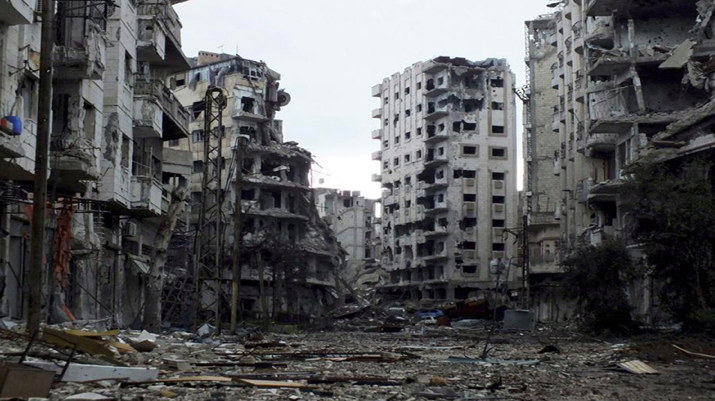As the world watches the drama unfold in Aleppo I am gripped by what the civilians have to deal with as they live under siege for months or years at a time. Hunted by snipers at day, and barrel bombs at night, starving slowly as blockades keep aid from entering their neighborhoods. Aleppo, a city under siege.
But being under siege can find people anytime, anywhere as circumstances conspire to take them down in the normal course of daily life. Those who lead and manage organizations are more prone than anyone because of the vast amount of issues that cross their desks (and their kitchen tables) every day.
The end game of a siege isn’t just to take territory or dominate people. A siege is all about breaking ones spirit so that they don’t rise up again. A siege is not just an attack, it is a prolonged beatdown brought on through multiple fronts in life. A survivor from the siege in Sarajevo referred to it as “Annihilation of the soul.”
How does one deal with living under siege when circumstances turn south in life, and emerge stronger from it?
One of the fatal mistakes leaders make is believing that only the singular large event that can take you down. An economic crisis or a catastrophic diagnosis. In actuality most organizations, or people, fail because of a succession of negative issues over a prolonged period of time. Being aware of the context of a siege is the first step to victory.
You may recall Malcom Gladwell writing about what causes commercial airliners to crash. What he determined is that aircrafts do not crash due to reasons that we think they should; the situation is beyond the pilots abilities, or major mechanical failure. If commercial airliners do not crash for these reasons, then what brings them down? It is normally a succession of negative events that compound themselves, which ultimately bring disaster; such as fatigue, poor communication with the tower or co-pilot, weather, minor mechanical issues, etc. Compounding and lingering minor issues can bring you down, the truth is singular life crisis usually do not.
Jesus referred to the small foxes as the ones who spoil the vines. Why was that? Large foxes can stand on their hind legs and pick fruit, small foxes gnaw through the base of the vine and bring the whole vine to the ground to the fruit. Essentially they kill the vine to access the fruit.
Here are keys to surviving a siege in life:
1. Deal with the minor issues, don’t just tough it out.
Les Stroud, the famous survivalist says that “macho will get you killed.” He uses a mental checklist when he survives alone. Every negative lingering liability is categorized as a “lemon.” A blister on the foot, a change in weather, dehydration, etc. He allows no more than three lemons to compound without stopping and addressing the issues. Sometimes it is best to stop and address issues before continuing. Gutting it out is not for the strong, but for the foolish.
2. You need friends, and coaching.
Many leaders choose isolation eventhough it’s not forced. They believe it is a sign of weakness to ask for help, and that they should be able to deal with these issues on their own. That is a fallacy. We are relational beings, not robots. Positive human interaction is healthy and beneficial because other people bring moral support and knowledge you don’t have. Of course you need to select the type of people who can actually listen and provide constructive support, without magnifying issues.
When Darayya was under siege for several years, some leaders of the community reached out through the internet to survivors from Sarajevo for help. They offered strategic support for survival, and moral support to cope mentally with the insanity of the siege. Hard lessons learned by others can become valuable training material for you.
3. Maintain your hope.
People living under siege know analytically that a war never lasts forever and that peace will eventually come. Finding the emotional resolve and discipline to stay focused on the long hard days is a different matter.
The apostle Paul said that “hope is the anchor of our soul.” Hope can carry you through incredibly difficult circumstances. Anchoring your hope to the understanding that God has planned a great life ahead of you, probably just on the other side of the siege you are experiencing, is the key to survival. Envisioning your preferred future and believing that it is possible, has fueled many people back into a healthy life. This key can make you more than a survivor of the siege, but a battle hardened victor that emerges stronger and healthier.
I have learned that people who leave a siege healthy, have a higher appreciation for the simple things in life, and enjoy life in ways most cannot relate to. They experience “Living” rather than simply being a participant in life.

